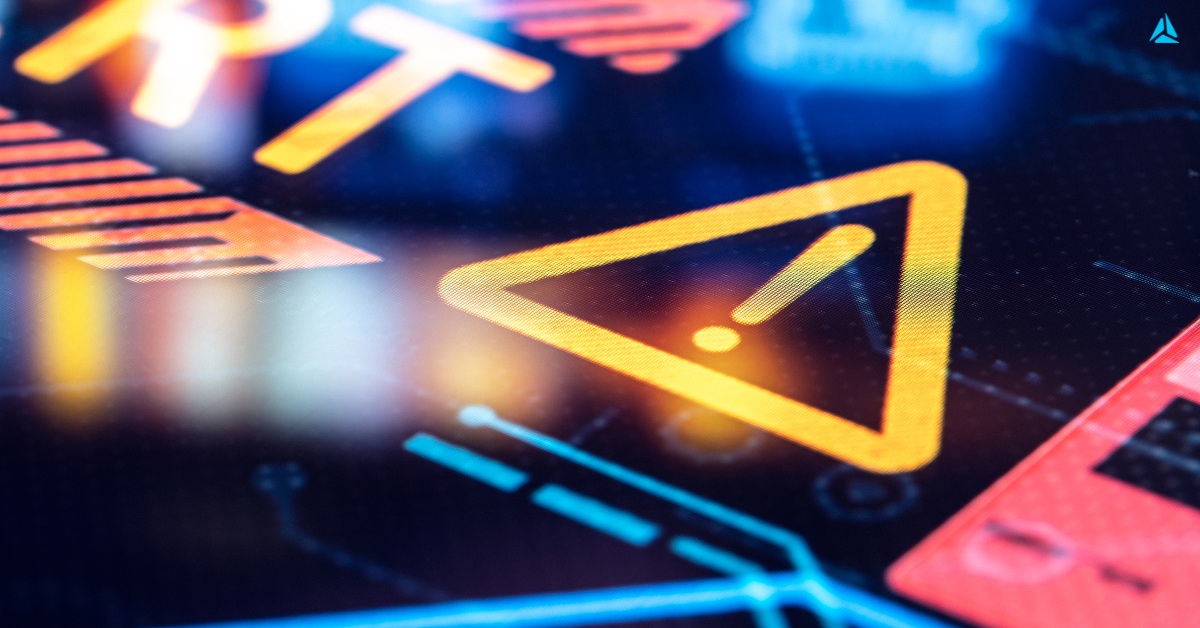Securing Your Mobile Life: Expert Tips for High-Profile Individuals on Protecting Your Digital Privacy
Importance of Digital Security for Corporate and Government Leaders
For business executives and government leaders, it’s imperative to have robust and comprehensive digital security measures in place. These individuals are prime targets for cyber criminals due to their high-profile status, access to sensitive information, and valuable data.
Business executives often possess confidential corporate data, trade secrets, and financial information that could be exploited for personal gain or corporate espionage. A successful cyber attack on an executive's device could lead to significant financial losses, reputational damage, and compromised competitive advantages.
Similarly, government leaders and officials have access to classified information and sensitive data related to national security, diplomacy, and critical infrastructure. A breach in their digital security could have severe consequences, including compromised intelligence, potential threats to public safety, and even geopolitical implications.
High net-worth individuals are also at risk of targeted attacks aimed at financial gain, such as ransomware, identity theft, or unauthorized access to bank accounts and investment portfolios. Cybercriminals may attempt to exploit vulnerabilities in their digital devices or networks to gain unauthorized access to sensitive financial data.
Moreover, the increased use of mobile devices and remote work arrangements has expanded the potential attack surface, making it even more crucial to implement robust digital security measures. Unsecured mobile devices or public Wi-Fi networks can serve as entry points for cyber threats, putting valuable data at risk.
By prioritizing digital security, high-profile individuals can protect their personal and professional interests, safeguard sensitive information, and mitigate the potential financial and reputational consequences of a successful cyber attack.
Understanding Digital Security
Digital security covers a broad range of measures and practices designed to protect digital assets, data, and systems from unauthorized access, misuse, or malicious attacks. It is a multifaceted concept that encompasses various aspects, including data protection, privacy, and cybersecurity.
- Data protection refers to the safeguarding of sensitive information, such as personal data, financial records, and intellectual property, from unauthorized access, theft, or misuse. This involves implementing robust encryption techniques, access controls, and data backup and recovery mechanisms.
- Privacy focuses on the protection of an individual's personal information and the right to control how that information is collected, used, and shared. This includes measures such as data minimization, anonymization, and strict adherence to privacy regulations and policies.
- Cybersecurity is concerned with the protection of computer systems, networks, and digital assets from cyber threats, such as malware, hacking attempts, and distributed denial-of-service (DDoS) attacks. It involves implementing security controls, monitoring for threats, and responding to incidents in a timely and effective manner.
Effective digital security requires a comprehensive approach that addresses all these aspects. It involves implementing robust technical controls, such as firewalls, antivirus software, and intrusion detection systems, as well as establishing and enforcing strong security policies and procedures. Additionally, in a corporate or government setting, regular security assessments, employee training, and incident response planning are essential components of a robust digital security strategy.
Common Digital Security Threats on Mobile Phones
High net-worth individuals, including business executives and government leaders, face significant digital security risks due to their high-profile status and access to sensitive information. Mobile phones, in particular, are vulnerable to various threats that can compromise personal and professional data.
Malware
Malware, short for malicious software, is a broad term encompassing viruses, trojans, spyware, and other harmful programs designed to gain unauthorized access to devices and data. Mobile malware can infiltrate phones through infected apps, compromised websites, or unsecured Wi-Fi networks. Once installed, malware can steal sensitive information, eavesdrop on communications, or even take control of the device.
One of the most prominent mobile spyware is Pegasus, made by the NSO Group in Israel. It has been used against a wide variety of government officials, journalists, dissidents and protestors around the world.
Phishing
Phishing is a social engineering technique that tricks users into revealing sensitive information or installing malware by impersonating legitimate entities. Phishing attacks on mobile devices often involve SMS (text message) scams or malicious links disguised as legitimate websites or apps.
In 2020, an Australian hedge fund lost $8.7 million in a phishing attack that also incorporated malware. The hackers targeted one of the hedge fund’s co-founders by sending a fake Zoom invite to him that allowed them to install malicious software, which in turn enabled them to create a series of fake invoices from his e-mail system. The executives at the hedge fund only realized their system had been compromised after checking the fund’s bank account and realizing millions of dollars were missing.
Unsecured Networks
Connecting to unsecured or public Wi-Fi networks can expose mobile devices to various threats, including man-in-the-middle attacks, eavesdropping, and data interception. Without proper encryption and security measures, sensitive information transmitted over these networks can be easily intercepted by malicious actors.
In 2024, two individuals were arrested for using IMSI-catchers and SMS blasters for smishing fraud. They used these devices to send fraudulent messages to individuals, posing as banks and other official organizations. These devices successfully tricked mobile phones into downgrading into 2G, which allowed the fraudulent messages to bypass network filters.
These real-world examples underscore the importance of robust digital security measures for high net-worth individuals, who are often prime targets for cybercriminals and nation-state actors seeking valuable information or opportunities for extortion.
Balancing Convenience and Privacy on Mobile Phones
Cell phones offer unparalleled convenience, allowing us to stay connected, access information, and perform a wide range of tasks on-the-go. However, this convenience often comes at the cost of privacy and security. High net-worth individuals, such as business executives and government leaders, face heightened risks due to their high-profile status and the sensitive nature of their communications.
Striking the right balance between convenience and privacy on mobile phones is a delicate task. On one hand, we desire the ease of use and accessibility that modern smartphones provide. We want to be able to quickly respond to emails, access important documents, and stay connected with colleagues and loved ones. On the other hand, we must be mindful of the potential security risks associated with these devices, such as data breaches, unauthorized access, and surveillance. The challenge lies in finding a solution that allows for the convenience of using a standard smartphone while maintaining a high level of privacy and security when necessary.
Achieving this balance requires a multi-layered approach that combines best practices for securing standard smartphones with the use of dedicated secure devices when complete privacy is required. By understanding the risks and implementing appropriate security measures, high net-worth individuals can enjoy the benefits of mobile technology while mitigating the potential threats to their privacy and data security.
Securing Standard Smartphones
While standard smartphones offer convenience and a wide range of features, they may not provide the level of security required for high-profile individuals. The good news is that you can implement some best practices and security tools to significantly enhance the protection of sensitive data on these devices.
- One essential step is to install reputable antivirus software and keep it updated regularly. Antivirus programs can detect and remove malware, viruses, and other malicious threats that could compromise your device's security. Additionally, make sure that full-disk encryption is enabled on your smartphone. This can help protect your data even if the device is lost or stolen.
- Another crucial aspect of mobile security is password management. Avoid using simple or easily guessable passwords, and consider using a password manager to generate and store strong, unique passwords for each account. This practice can prevent unauthorized access to your accounts and sensitive information.
- It's also essential to keep your smartphone's operating system and applications up-to-date with the latest security patches and updates. Software updates often address known vulnerabilities and security flaws, reducing the risk of exploitation by cybercriminals.
While these measures can significantly enhance the security of standard smartphones, it's important to note that they may not provide the level of privacy and protection required for highly sensitive communications or data.
In fact, in 2023, Apple’s iOS had eight zero-day attacks and Android had nine. And the data is going in the wrong direction – the previous year they each only had three zero-day attacks. This just goes to show how commercial surveillance vendors and other hackers use increasingly advanced technology to bypass Apple and Android’s security protocols.
Standard smartphones are designed for consumer use and may still be vulnerable to advanced cyber threats, such as sophisticated malware or state-sponsored attacks.
The Need for Secure Devices
While following best practices for securing standard smartphones can provide a reasonable level of protection, high net-worth individuals and those in positions of power or influence often require an additional layer of security. Sensitive communications, confidential data, and high-stakes negotiations demand a level of privacy that standard devices cannot guarantee.
Secure devices, such as the Sotera SecurePhone, are designed specifically to address the unique security needs of high-profile individuals. These devices incorporate advanced encryption algorithms and secure communication protocols, ensuring that all data transmitted or stored on the device is protected from unauthorized access.
One of the key advantages of secure devices is their limited app access. Unlike standard smartphones, which allow users to install a wide range of applications, secure devices restrict app installation to a curated set of thoroughly vetted and secure apps. This approach significantly reduces the attack surface and minimizes the risk of malware or other malicious code compromising the device's security.
Furthermore, secure devices often feature enhanced physical security measures, such as tamper-resistant hardware further safeguarding against unauthorized access. These devices are also subjected to rigorous security audits and regular updates, ensuring that they remain protected against the latest cyber threats.
By using a separate, secure device for sensitive communications and data handling, high net-worth individuals can enjoy the convenience of standard smartphones for day-to-day activities while maintaining complete privacy and protection against advanced cyber threats when needed.
Introducing the Sotera SecurePhone
For those seeking the ultimate in mobile privacy and data protection, the Sotera SecurePhone is a state-of-the-art device engineered with advanced security features to ensure your communications and sensitive information remain secure and confidential.
The Sotera SecurePhone utilizes military-grade encryption to safeguard all data transmitted to and from the device. Every call and text message between SecurePhones is encrypted end-to-end, preventing unauthorized access or interception. Additionally, the device's secure operating system and hardened kernel provide unparalleled levels of protection against malware, viruses, and other cyber threats. In fact, the SecurePhone’s operating system is the only operating system to receive an EAL 6+ ranking from the National Security Agency. This is the highest certification relevant to operating systems.
The device's limited app access ensures that only Sotera’s proprietary secure communication applications can be installed, minimizing the risk of vulnerabilities. Furthermore, the device's secure voice calling capabilities enable private conversations without the fear of eavesdropping or surveillance.
Whether you're a business executive, government leader, or simply value your privacy, the Sotera SecurePhone provides the peace of mind that your sensitive information is protected at the highest level.
Expert Insights from Sotera Digital Security
At Sotera Digital Security, we understand the unique challenges faced by high net-worth and high-profile individuals when it comes to maintaining digital security. Our team of experts has extensive experience in safeguarding the digital assets and communications of business executives, government leaders, and other high-profile clients.
One of the most critical aspects of mobile device security is staying vigilant and proactive. Threats are constantly evolving, and complacency can leave you vulnerable. Our experts recommend conducting regular security audits and promptly installing software updates to ensure your devices are protected against the latest threats.
Another crucial consideration is the separation of personal and professional data. While standard smartphones may be suitable for personal use, we strongly advise our clients to use a dedicated secure device, such as the Sotera SecurePhone, for sensitive communications and data handling. These devices offer enhanced encryption, limited app access, and other advanced security features to safeguard your privacy and protect against potential breaches.
Sotera Digital Security also emphasizes the importance of proper digital hygiene. This includes using strong, unique passwords for each account, enabling two-factor authentication whenever possible, and exercising caution when connecting to public Wi-Fi networks. Our experts can provide personalized guidance on implementing these best practices and tailoring your security measures to your specific needs and risk profile.
Ultimately, maintaining digital security is an ongoing process that requires a proactive and comprehensive approach. At Sotera Digital Security, we pride ourselves on staying ahead of the curve and providing our clients with the latest tools, techniques, and expertise to ensure their digital assets and communications remain secure.
Make the First Step to Safeguard Mobile Communications
For high net-worth individuals such as business executives and government leaders, it’s crucial that they strike the right balance between convenience and privacy when it comes to their mobile devices. While standard smartphones offer a wealth of features and functionalities, they may not always provide the level of security required for sensitive communications and data.
When complete privacy is required, a separate, secure device like the Sotera SecurePhone becomes necessary. These specialized devices offer advanced encryption, limited app access, and other robust security features designed to safeguard sensitive information and communications.
At Sotera Digital Security, our team of experts is committed to helping you meet your digital security needs. We encourage you to contact us for a consultation to explore the Sotera SecurePhone and learn how we can help you strike the perfect balance between convenience and privacy on your mobile devices.
Invest in your digital security today and experience the peace of mind that comes with knowing your sensitive information and communications are protected. Contact us today and take the first step towards a safer, more secure digital future.

 Securing Your Mobile Life: Expert Tips for High-Profile Individuals on Protecting Your Digital Privacy">
Securing Your Mobile Life: Expert Tips for High-Profile Individuals on Protecting Your Digital Privacy">





Leave a Reply
Your email address will not be published.*